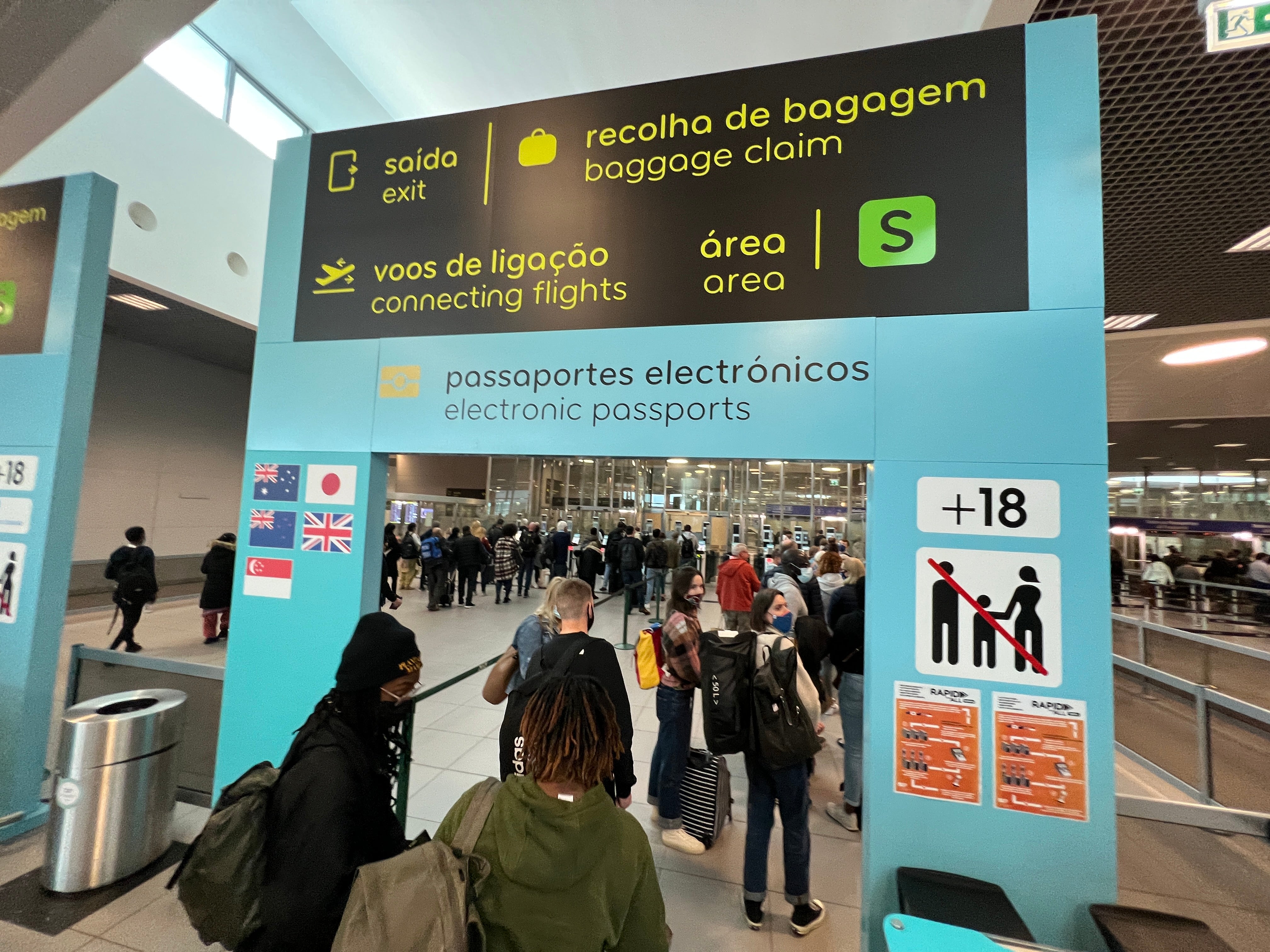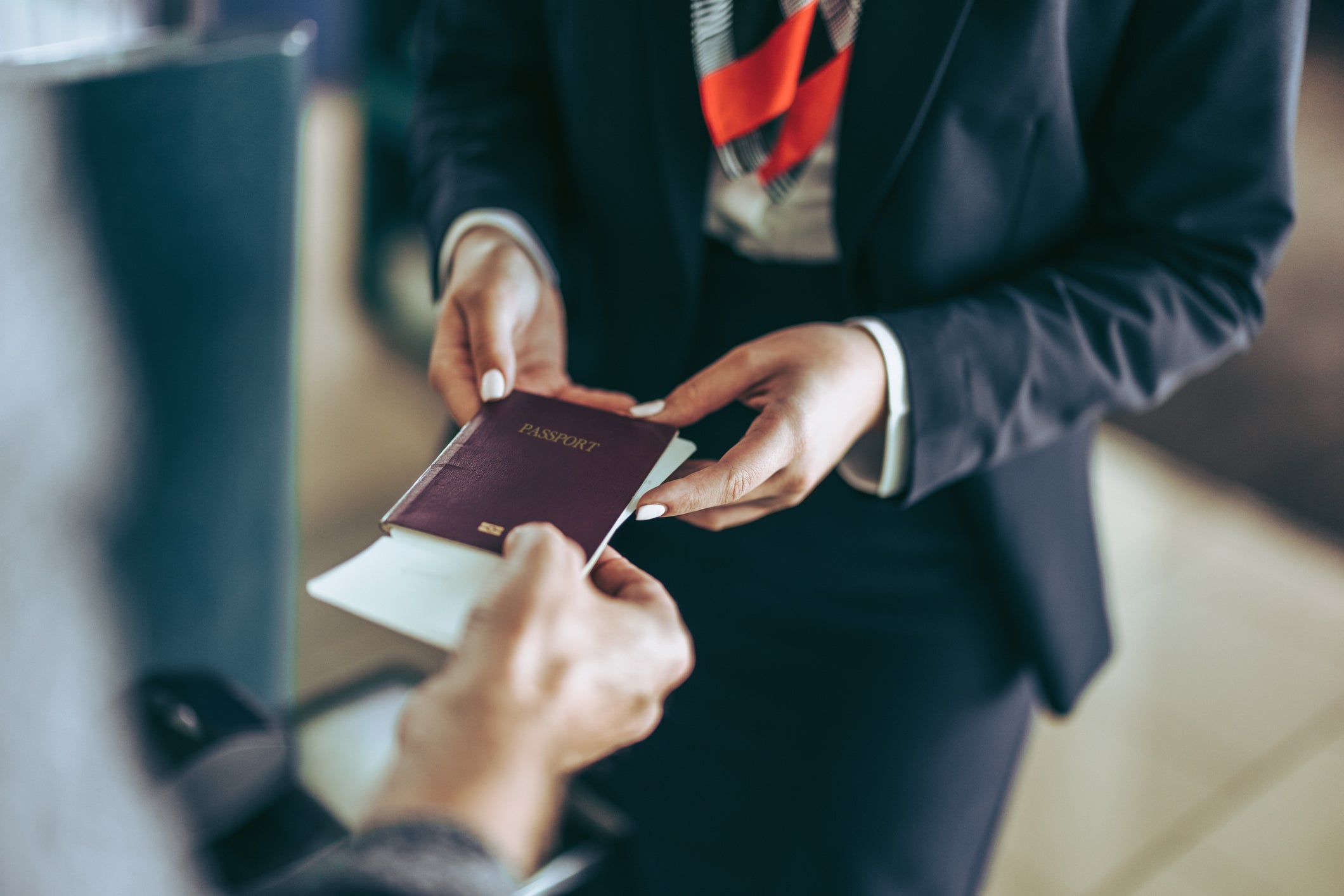Why are rail fares so high?
Simon Calder answers your questions on train prices, EU visas and passport chaos


Q I have read your coverage of the rail strikes. Surely part of the problem facing the industry is that fares are so high. Many of my journeys are for work, so I don’t pay. But should my ticket from Manchester to London really cost £370 return?
Chris B
A Yes and no.
Yes, in the sense that a standard anytime return, valid on peak hour departures, is priced at £370. Avanti West Coast, which runs fast services from Manchester Piccadilly to London, has some of the most restrictive peak travel rules in the business – any departure before 9.30am is priced at £185 one-way, making it impossible to reach the capital before the afternoon for an off-peak fare. And departures are classed as peak going northbound up to 9.26am and then from 3.01pm to 6.44pm. Avanti West Coast has made the welcome decision to scrap all peak restrictions on Fridays (as well as Saturdays and Sundays, of course). But from Monday to Thursday fares that look more like fines prevail.
No, I don’t think your company should have to pay that sort of price – but the thinking is that there will be some firms which don’t think twice about paying such outlandish sums and the rail industry might as well cash in. More price-sensitive organisations, or individuals, will find a different way – of which there are many.
Some will seek to exploit wrinkles in the system, such as the fact that trains from Lancaster to London have less off-peak rules than those from Manchester.
But it is a better plan to allow a little longer. My standard Manchester-London journey involves taking Northern or Transport for Wales to Crewe, where I change for London Northwestern. It adds about an hour to the journey but typically costs less than £50 return (and in my experience, London Northwestern on-train wifi is far better than Avanti’s). Others will travel down to London the night before – saving enough by going off peak to pay for a very good hotel and dinner.

Q Will I need a visa to get into France next October?
Ian W
A No. The European Union has been planning the European Travel Information and Authorisation System (Etias) for years; indeed the UK was involved early on in the project while still an EU member. As with the US Esta and Canada’s eTA, the aim is to get plenty of information in advance on travellers arriving from “third countries”. In the European context, that means anyone from outside the EU or the wider Schengen Area.
When it is finally introduced, UK travellers hoping to visit the Schengen area will be required to register and pay €7 (£6) in advance for an Etias permit. On arrival at the border, they are also likely to be required to supply fingerprints and be photographed.
The European Union claims it will be a “simple, fast and visitor-friendly system” that will “save travellers time and hassle”. It is hard to see how filling in a form and making a payment will save time and hassle. But that is exactly what the UK negotiated with the Brexit withdrawal agreement.
Right through to the month you are travelling, I can guarantee you will not need an Etias. The implementation date has been progressively moved later and later, with November 2023 now the proposed start.
I should also note that Brussels insists “Etias authorisation is not a visa”. The European Commission says: “An Etias travel authorisation does not reintroduce visa-like obligations.” It points out there is no need to go to a consulate to make an application, adding that “significantly less information is gathered than during a visa application procedure”. Let me quote, though, Tim Reardon – head of EU Exit for the Dover Harbour Board. He says: “It’s not called a visa, but the practical effect is the same.” And I confidently predict that Etias will be popularly described as a European visa or e-visa as soon as its existence becomes widely known.

Q Why has the India visa office suddenly stopped agents attending interviews on behalf of applicants?
Anonymous
A The wonderful and welcoming nation of India is currently giving the impression that it loathes British visitors. After the coronavirus pandemic, the government in Delhi declined to reinstate eVisas for UK passport holders hoping to visit India. Everyone has to apply for a full visa. Until now it has been possible for an agent to make the application: expensive but easier and professionally handled. But the latest report I have – which I have not been able to verify – is that every prospective traveller must attend an Indian visa issuing service. This is expensive, disruptive and stressful. In addition, appointments are extremely scarce, jeopardising the travel plans for people hoping to leave in the next few weeks.
Some travel firms are being extremely hard hit by the decisions of the Indian government and may be forced out of business. It is dismal, too, for hotels and other hospitality providers in India. After the coronavirus pandemic everyone wants to get back to business as usual, but ministers have chosen to make life much tougher – I believe due to the concept of reciprocity.
It is a long-standing tradition: if country A makes strict demands for access from citizens of country B, then country B can impose tough rules in retaliation.
The Indian government is, of course, perfectly entitled to implement whatever policy it wishes. The tough attitude from Delhi appears to be a political response to the regrettably labyrinthine and expensive hurdles that the UK imposes for Indian travellers seeking a British visa. You can see their point. But other countries do things pragmatically in order to nurture their travel industries: from Egypt to Ecuador, the hurdles are lower and the welcome feels warmer.
The short-term effect of unexpected bureaucratic unfriendliness to travellers is to cause stress, anxiety and financial loss. Longer term, I fear British people will swerve away from visiting India, to the obvious benefit Sri Lanka and other Asian nations with less onerous requirements.
It will be interesting to see if the Indian tourism industry turns up at next month’s World Travel Market in London. As things stand, I am not sure why they would bother.

Q On a recent trip to Rimini in Italy, the gate agent at London Stansted wanted to deny me boarding when I presented my Irish passport. It is expiring in a couple of weeks, on 25 October. She tried to claim that as it did not have three months validity left, I could not travel – and called her supervisor to support her bid to remove me from the flight.
When the supervisor heard that it was an Irish passport, she correctly allowed me to proceed. If I had been incorrectly denied boarding, I would have been entitled to compensation. Why do airlines not ensure their contractors are adequately trained?
Flying King 2, via the latest Ask Me Anything at independent.co.uk/travel
A Thanks for sharing your experience. Travel is difficult enough at the moment without airlines introducing complications where they don’t exist. As you know, a European Union passport is valid up to and including the expiry date in any EU country.
Since Brexit, at the request of the UK, a British passport must pass two tests for it to be valid in Europe:
– Issued no more than 10 years ago.
– At least three months remaining on the date of travel out of the EU.
Clearly the staff member tried to apply the second of these conditions to your passport. I am glad you convinced them of their error.
Before the UK left the European Union, I was aware of perhaps half-a-dozen cases of airport ground staff wrongly denying boarding. Since Brexit, it can sometimes be six a day. Ground staff working for a wide range of airlines, including Ryanair and easyJet, have shown a shocking absence of expertise on passport rules – partly because the airlines themselves chose for many months to make up regulations that didn’t exist.
I have no idea why they chose to wreck the travel plans of customers and make themselves liable for potentially millions of pounds in compensation. They are finally getting better, but work evidently remains to be done.
Email your question to s@hols.tv or tweet @simoncalder


Join our commenting forum
Join thought-provoking conversations, follow other Independent readers and see their replies
Comments